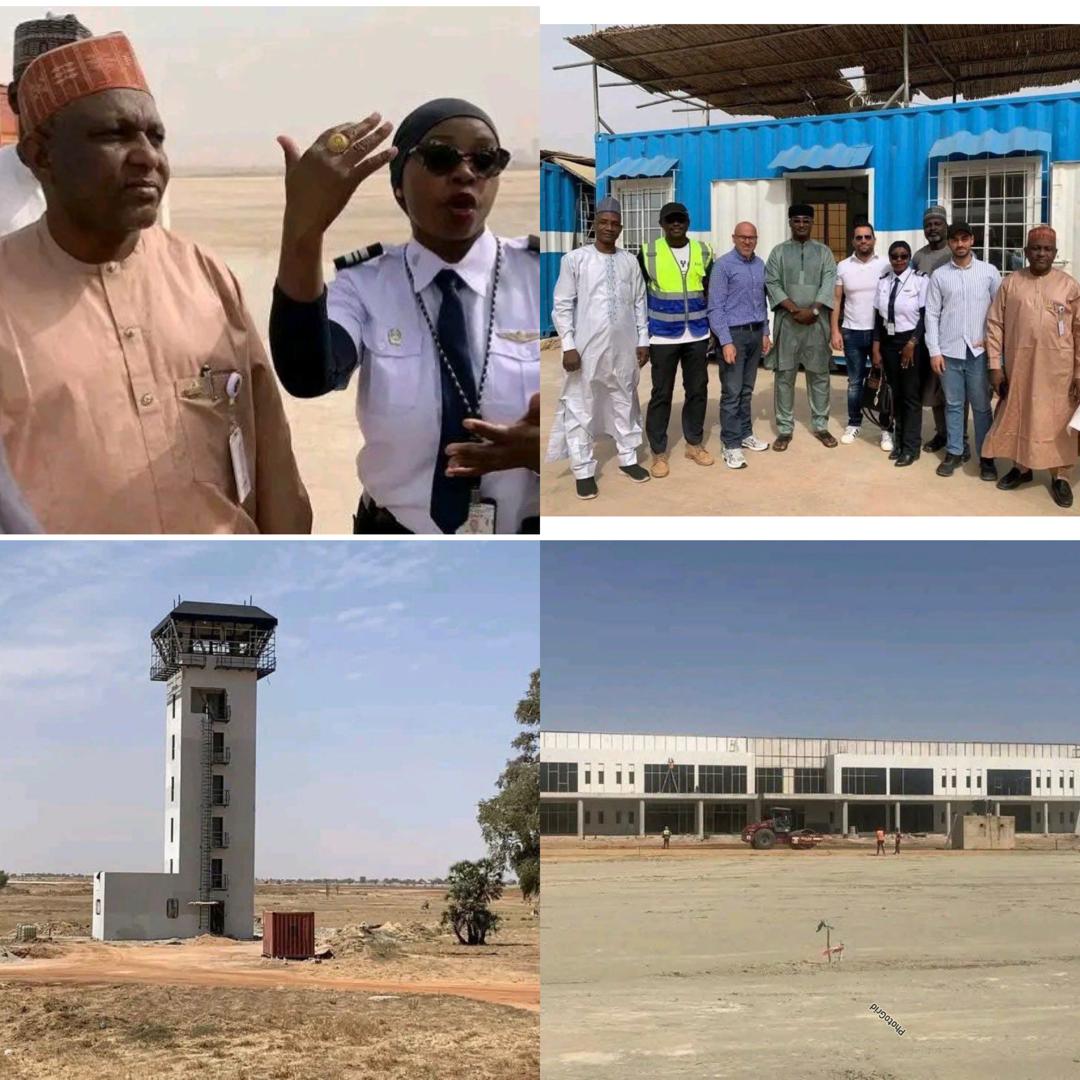society
The real arguments for Nigeria’s digital Banks

If you live in Nigeria, you’ve probably heard some stories about how difficult it is to get anything done at a government agency. Those stories are so popular that they have made their way into popular culture through “oga is not on seat” jokes.
When you’re going to a government agency, you brace yourself for the reality that no matter how small the task you want to accomplish, it could take all day. It’s not unusual for simple processes to be complicated by ridiculous demands.
It’s the sort of thing we’ve come to expect from Nigeria’s public sector. Yet, in the private sector,
Nigeria’s legacy banks will give any government institution a run for their money. A few weeks ago, I read this interesting rant by a Nigerian in the UK Guardian on how it took him 15 trips to the banking hall to withdraw money.
We all have these experiences. The Nigerian banking system throws up the kind of processes that can test the patience of the Pope. Sometimes you apply to get a debit card and you wait for weeks to get. Then you begin another process to get the PIN for the same debit card.
Some other issues that rankle are the unending debts for card maintenance, SMS alerts, the list is endless. Yet, these would be such small trade-offs if Nigerian banks actually provide services that work and are reliable. Bank transfers in Nigeria are like Russian roulette.
Sometimes you can transfer money without hassles, the next time, you may get debited thrice for a failed transaction.
Frankly, I’m not sure which I would rather visit: a banking hall or a government parastatal. If banking is this difficult for me, what’s it like for a lot of the people in the informal sector?
I got the clearest answer last week when my friend shared an article about how many of the artisans who work for him often do not have bank accounts. It’s hard to fault them because banks and banking have come to represent stressors for the average person.
Digital banks are promising freedom
This is why the Digital alternative to banking is interesting. The counterbalance to the wahala of legacy banking is a bank that exists almost entirely in your phone.
They have no physical branches so you don’t have to spend hours in a banking hall trying to explain to a frazzled customer rep that you can no longer reproduce your signature from when you first opened the account seven years ago.
But beyond the branchless structure of digital banks, one of the things Digital banks like VBank say that works for me is their promise of banking without a ton of bank charges. I can be free from those pesky little card maintenance charges from that second-generation bank.
I can make a request for a debit card from an app and get the card delivered to my address in one week.
It’s not often that a bank says all the right things. Yet, there are lingering questions like, “can I put my money in a bank that doesn’t have a branch that I know?”, “Whose shirt will I hold when they debit my account wrongly?.”
There are also big questions like; many of the promises of ease the digital banks make will appeal to the carpenter down your street who still doesn’t have a bank account. How will digital banks reach people like this?
Can the segment of the population who find these promises of freedom attractive- young millennials – form the basis for a sustainable business?
These are questions that remain up in the air, but here’s what I know; V Bank makes really good promises, but the real argument for them is time. Will they still send my debit card in 4 business days in 2027? Will my free transfers still go through and will their customer reps still be as attentive?
I don’t have a crystal ball, but it doesn’t hurt to live in the moment and enjoy all these perks right away.
society
NCAT Delegation Tours Gusau International Airport, Commends Governor Lawal, Eyes Strategic Partnership for Aviation Training

NCAT Delegation Tours Gusau International Airport, Commends Governor Lawal, Eyes Strategic Partnership for Aviation Training
In a move signaling a major push for inter-agency cooperation within Nigeria’s aviation sector, a high-level delegation from the Nigerian College of Aviation Technology (NCAT), Zaria, has undertaken an official working visit to Gusau International Airport currently under construction by the administration of Governor Dauda Lawal. The visit, aimed at a comprehensive assessment of the facility’s infrastructure and operational capabilities, is seen as a foundational step toward forging a strategic partnership to bolster aviation training and safety standards across the region.
The NCAT team, led by Nasir Muhammad Bungura, conducted an extensive tour of the airport premises. They were received and accompanied by the Permanent Secretary of the Zamfara State Ministry of Works and Infrastructure, Engr. Haruna Dikko Gusau, underscoring the state government’s keen interest in maximizing the airport’s potential.
During the meticulous inspection, the delegation evaluated the airport’s runway, terminal buildings, navigational aids, and safety apparatus. Following the tour, Mr. Bungura commended Governor Lawal for a job well done as he expressed profound satisfaction with the state of the facility, describing the infrastructure, operational protocols, and visible ongoing upgrade projects as both encouraging and highly promising.
“The standards we have observed here today are commendable and align strongly with international best practices,” Bungura stated. “Gusau International Airport possesses a robust foundation. Our visit was to assess how this facility can serve as a practical hub for our training programs, offering our students real-world exposure to a modern, functioning airport environment.”
The delegation highlighted the airport’s latent potential to serve as a critical node for specialized aviation training, particularly in areas of safety operations, air traffic control simulations, and aircraft handling. Such collaboration, they noted, would not only enhance the practical skills of NCAT cadets but also contribute to elevating the overall safety and efficiency metrics of Nigeria’s air transport system.
Engr. Haruna Dikko Gusau welcomed the NCAT delegation’s interest, reiterating the Zamfara State government under Governor Dauda Lawal is committed to developing the airport as a catalyst for economic growth and regional integration. “This visit is a testament to the growing strategic importance of Gusau International Airport,” Engr. Gusau remarked. “We are not just building infrastructure; we are creating a hub for opportunity. Partnering with a prestigious institution like NCAT will ensure this facility contributes meaningfully to human capital development and the advancement of Nigeria’s aviation industry.”
The visit marks a significant milestone for Gusau International Airport, transitioning its role from a regional transit point to a potential center of excellence for aviation education and a key partner in national aviation development. Both parties are expected to hold further discussions to formalize areas of collaboration, which could pave the way for NCAT to utilize the airport for specialized training exercises and curriculum development in the near future.
society
Ramadan: Adron Homes Felicitates Muslims, Preaches Hope and Unity

Ramadan: Adron Homes Felicitates Muslims, Preaches Hope and Unity
Adron Homes & Properties Limited has congratulated Muslim faithful on the commencement of the holy month of Ramadan, urging Nigerians to embrace the virtues of sacrifice, discipline, and compassion that define the season.
In a statement made available to journalists, the company described Ramadan as a period of deep reflection, spiritual renewal, and strengthened devotion to faith and humanity.
According to the management, the holy month represents values that align with the organisation’s commitment to integrity, resilience, and community development.
“Ramadan is a time that teaches patience, generosity, and selflessness. As our Muslim customers and partners begin the fast, we pray that their sacrifices are accepted and that the season brings peace, joy, and renewed hope to their homes and the nation at large,” the statement read.
The firm reaffirmed its dedication to providing affordable and accessible housing solutions to Nigerians, noting that building homes goes beyond structures to creating environments where families can thrive.
Adron Homes further urged citizens to use the period to pray for national unity, economic stability, and sustainable growth.
It wished all Muslim faithful a spiritually fulfilling Ramadan.
Ramadan Mubarak.
society
Underfunding National Security: Envelope Budgeting Fails Nigeria’s Defence By George Omagbemi Sylvester

Underfunding National Security: Envelope Budgeting Fails Nigeria’s Defence
By George Omagbemi Sylvester | Published by saharaweeklyng.com
“Fiscal Rigidity in a Time of Crisis: Lawmakers Say Fixed Budget Ceilings Are Crippling Nigeria’s Fight Against Insurgency, Banditry, and Organized Crime.”
Nigeria’s legislature has issued a stark warning: the envelope budgeting system; a fiscal model that caps spending for ministries, departments, and agencies (MDAs) is inadequate to meet the country’s escalating security challenges. Lawmakers and budget analysts argue that rigid fiscal ceilings are undermining the nation’s ability to confront insurgency, banditry, kidnapping, separatist violence, oil theft and maritime insecurity.
The warning emerged during the 2026 budget defence session for the Office of the National Security Adviser (ONSA) at the National Assembly in Abuja. Senator Yahaya Abdullahi (APC‑Kebbi North), chairman of the Senate Committee on National Security and Intelligence, decried the envelope system, noting that security agencies “have been subject to the vagaries of the envelope system rather than to genuine needs and requirements.” The committee highlighted non-release or partial release of capital funds from previous budgets, which has hindered procurement, intelligence and operational capacity.
Nigeria faces a multi‑front security crisis: persistent insurgency in the North‑East, banditry and kidnappings across the North‑West and North‑Central, separatist tensions in the South‑East, and piracy affecting Niger Delta oil production. Despite declarations of a national security emergency by President Bola Tinubu, lawmakers point to a “disconnect” between rhetoric and the actual fiscal support for agencies tasked with enforcement.
Experts warn that security operations demand flexibility and rapid resource allocation. Dr. Amina Bello, a public finance specialist, said: “A static budget in a dynamic threat environment is like sending firefighters with water jugs to a forest fire. You need flexibility, not fixed ceilings, to adapt to unforeseen developments.”
The Permanent Secretary of Special Services at ONSA, Mohammed Sanusi, detailed operational consequences: irregular overhead releases, unfulfilled capital appropriations, and constrained foreign service funds. These fiscal constraints have weakened intelligence and covert units, hampering surveillance, cyber‑security, counter‑terrorism and intelligence sharing.
Delayed capital releases have stalled critical projects, including infrastructure upgrades and surveillance systems. Professor Kolawole Adeyemi, a governance expert, emphasized that “budgeting for security must allow for rapid reallocation in response to threats that move faster than political cycles. Envelope budgeting lacks this essential flexibility.”
While the National Assembly advocates fiscal discipline, lawmakers stress that security funding requires strategic responsiveness. Speaker Abbas Ibrahim underscored that security deserves “prominent and sustained attention” in the 2026 budget, balancing oversight with operational needs.
In response, the Senate committee plans to pursue reforms, including collaboration with the executive to restructure funding, explore supplementary budgets and ensure predictable and sufficient resources for security agencies. Experts warn that without reform, criminal networks will exploit these gaps, eroding public trust.
As one policy analyst summarized: “A nation declares a security emergency; but if its budget does not follow with real resources and oversight, the emergency remains rhetorical.” Nigeria’s debate over envelope budgeting is more than an accounting dispute; it is a contest over the nation’s security priorities and its commitment to safeguarding citizens.
-

 celebrity radar - gossips6 months ago
celebrity radar - gossips6 months agoWhy Babangida’s Hilltop Home Became Nigeria’s Political “Mecca”
-

 society6 months ago
society6 months agoPower is a Loan, Not a Possession: The Sacred Duty of Planting People
-

 society5 months ago
society5 months agoReligion: Africa’s Oldest Weapon of Enslavement and the Forgotten Truth
-

 news6 months ago
news6 months agoTHE APPOINTMENT OF WASIU AYINDE BY THE FEDERAL GOVERNMENT AS AN AMBASSADOR SOUNDS EMBARRASSING








